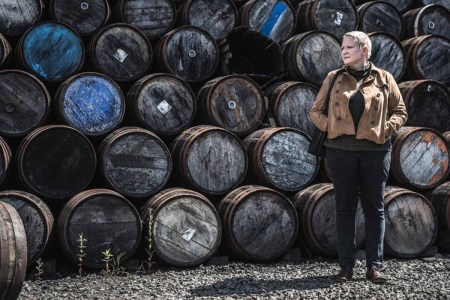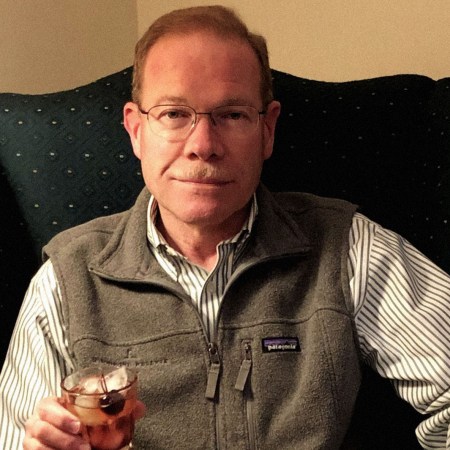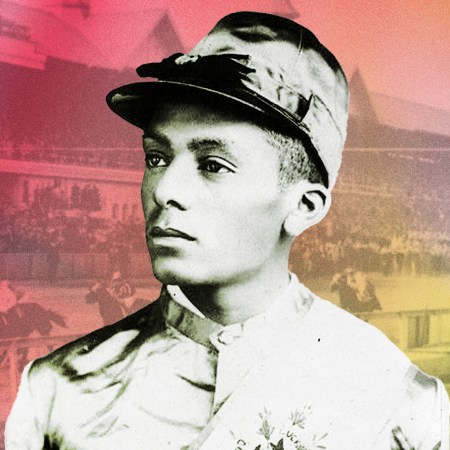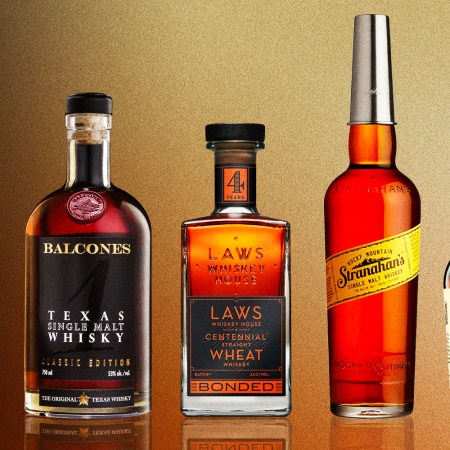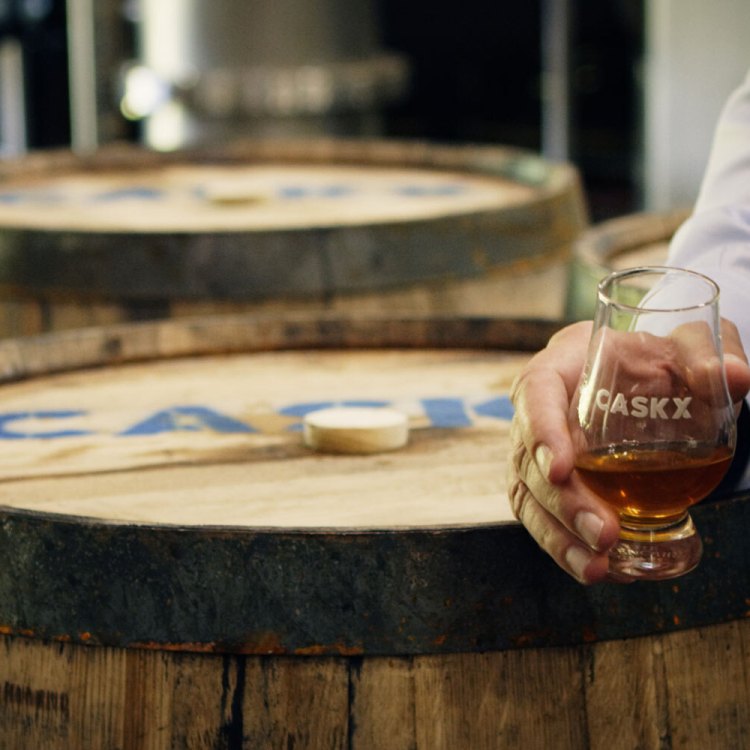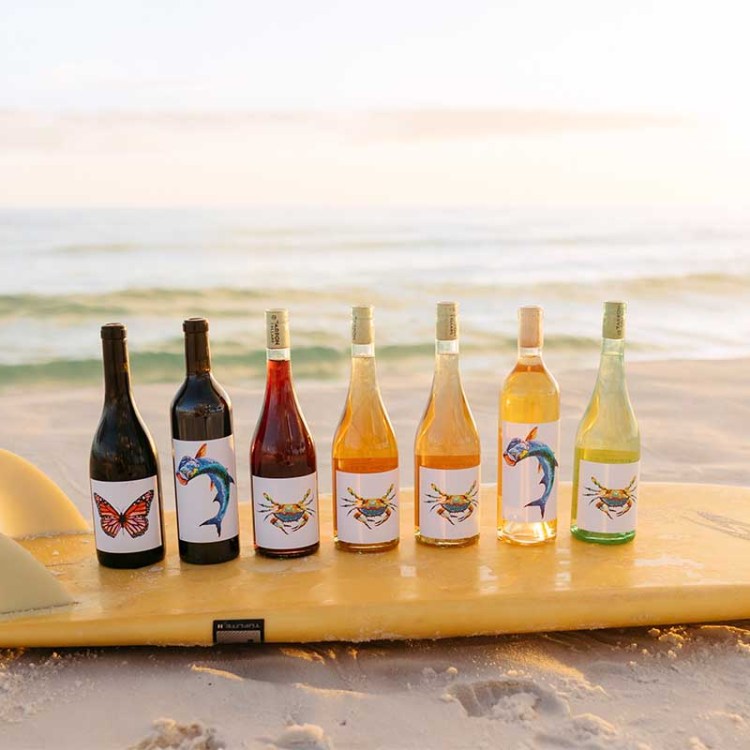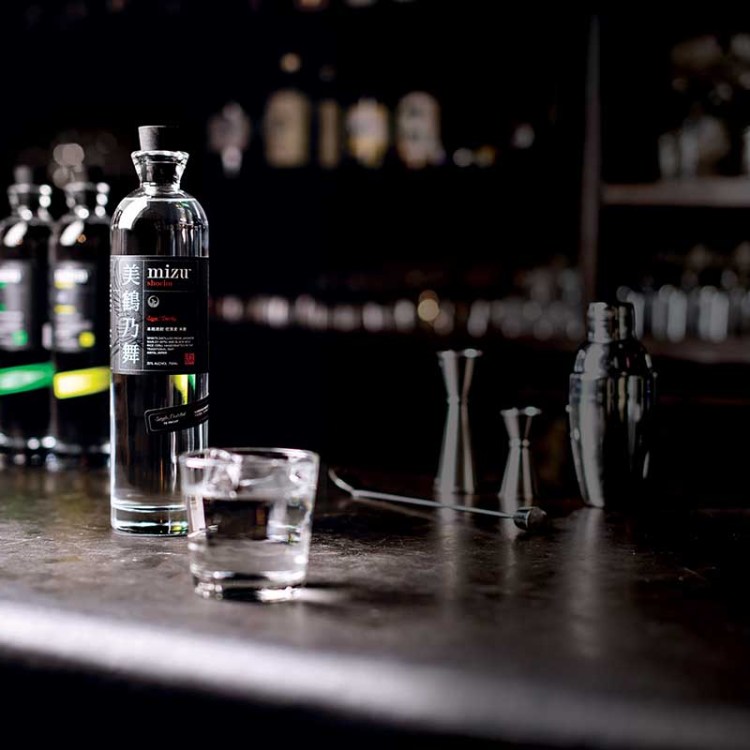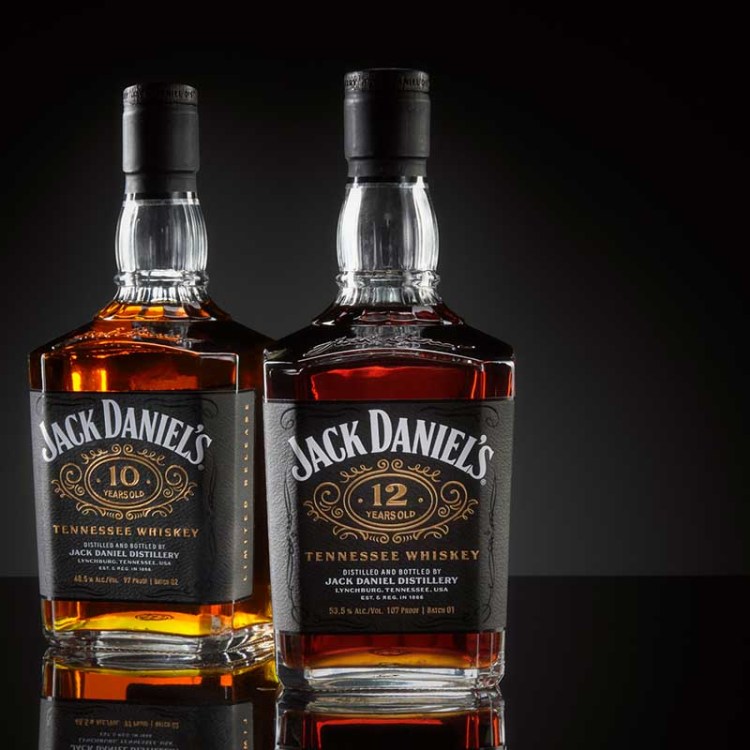Hey there… sorry for the interruption. Before you dive into this article, we just wanted to quickly let you know that we now have a new weekly newsletter devoted solely to drinks and drink culture called The Spill. If this seems like it might be up your alley, please go here and sign up. We think you’ll like it.
Elizabeth McCall is only the third Master Distiller in Woodford Reserve’s 26-year modern history. She succeeds Chris Morris, who will assume the role of Master Distiller Emeritus.
“I’ve been preparing for this, but nothing can prepare you for the day it actually happens,” she tells InsideHook, a few days after the announcement.
While this appointment makes McCall one of the first female master distillers for a major American whiskey brand, it has been a long time coming. And this wasn’t a life-long dream: McCall initially studied psychology and got her master’s degree from the University of Louisville with the idea of becoming a therapist.
But an early job at Brown-Forman (Woodford Reserve’s parent company) in 2009 in the Research & Development department piqued her interest in whiskey, and she began a mentorship under Morris in 2015 as a Master Taster, which eventually led to her ascension to Assistant Master Distiller five years ago and now, her current promotion.
An Enlightening Q&A With Johnnie Walker’s First Female Master Blender
Dr. Emma Walker on breaking barriers, bringing innovation to Scotch and why blood orange soda is a perfect highball mixerWe spoke with McCall a few days after her new position was announced, discussing the process (or lack thereof) on becoming a Master Distiller, what the bourbon brand has planned for the near future and why even having a top job at a major distillery doesn’t mean you always get a rare bottle.
InsideHook: I’ve seen you and Chris at events and tastings for years, working side-by-side. It was a cool thing, and it seems like this promotion has been a long-term plan.
Elizabeth McCall: Yeah, somebody was asking me that last night and they were like, “How long have you been thinking you’re gonna be a Master Distiller one day?” And I was like, well, I mean, since 10 years ago, when we started talking. Chris was like, well, if you start training for this, here you’re career path options: You’re going to be a Master Distiller. That’s what you’re going to be. It’s not like you’re going to be a VIP of Sales and then a production manager. You are on this track.
Everyone kind of has a weird pathway to becoming a Master Distiller. Wouldn’t a little structure help?
Yeah. You talk to most people who have this title and they’re not like, “I went to school for this” … I never thought I’d be here. And so that’s an interesting question because now there are programs where people are getting certified to be distillers, and that did not exist when I was going through school. The way that you became a master distiller was you worked for a company for a long time, worked your way up, and then you kind of were appointed to the role. Now, there are so many different ways to do it, and there’s no definition of what makes somebody a master distiller. Every company, it’s different. Everybody has different roles and responsibilities.
But Chris Morris laid out a strict curriculum for me to follow as a development plan. And it included not only working at Woodford Reserve for a few years but also working with marketing, packaging, the cooperage and going to our production facilities. There was a big level of development behind being considered for this role.
Is this what you pictured you’d be doing at 22?
No (laughs). When I was 22, I thought I wanted to be a therapist. When I graduated undergrad, I was like, “What do I do?” I think that’s the most terrifying year of your life. The world makes you think you’re supposed to have it figured out or what you’re supposed to do. I didn’t. So I went and got my graduate degree in psychology to be a therapist. And I wanted to have a corner office with a couch, like the TV show Shrinking. But to get there, it takes so many years.
But there was a job opening up at Brown-Forman, working in the quality control sensory room and lab; the way it was presented to me, I would set up taste panels and recruit people to do tastings. I was like, “I can do that!” And I used my psychology degree because sensory is all about the human response to a product. I could leverage what I learned in school to set up methodology and experimentation and statistical analysis to apply to alcohol.
And this is so much more fun than talking about people’s problems.
Given that every company’s setup is different, what is Woodford Reserve doing? Do you have an Assistant Master Distiller?
Currently, no assistant master distiller has been named. We do need somebody to help support this growing brand with PR and engagement with consumers’ perspective because that’s a lot of what these roles do beyond technical expertise. And so that’s something we’re considering and trying to identify people that would be good at that.
How does the process for getting something new to market work at Woodford?
It’s kind of multifaceted. When you’re dealing with a major brand, there are a lot of key stakeholders who have a say so. We have our innovation team which consists of Chris Morris and me. We have somebody who’s in processing research and development. And then we have somebody who does insights from a consumer perspective. It’s just nice to have all these people in the room to kind of give feedback on what we’re putting together.
In the end, we have to present it to the marketing team. The brand team, they own this too. So everybody has a partnership in it. It’s a giant ship that we’re all kind of steering, but it kind of starts with my brain and Chris Morris’s brain, honestly, which is really cool. And then at the end of the day, if it tastes like crap, it comes back to me. (Laughs)
Chris is still around?
Chris is assuming the role of emeritus. He’s here until I retire. He’s still leading innovation for Old Forester, King of Kentucky…he’s VP of Whiskey Innovation for Brown-Forman. He’s a creative genius when it comes to the whiskey space and he’s a great resource.

The first thing that’s come out around this announcement is the Woodford Reserve Historic Barrel release. Can you tell me about that?
Yes. So that was put it went into the barrel before my time in 2014. I was with the company that I was just a little lab rat. Our Master’s Collection is all about changing one of the five sources of flavor and seeing how it impacts the overall flavor, which, as a sensory nerd and science brain, I love eliminating variables and taking it down to one. And so when you taste this whiskey you’re going to see the impact of new-make entering the barrel at 100 proof as opposed to 110, which is what we normally enter the barrel in. And of course, then the age is greater. And it’s one-month production versus batching across several years. So if you’re going to see a difference in flavor just from those variables, but it’s interesting to see how basically when you enter at a lower proof, the expectation is that it won’t gain as much proof during maturation, and therefore you won’t have to add as much water to the whiskey and you’ll retain more character.
And that’s what happened. It has all this wonderful oak richness. And it’s 100% our pot-still whiskey, too.
Do you have immediate plans now that you’re the Master Distiller?
Well, I work for Brown-Forman and we are a slow-moving company. So we don’t do anything super fast here, because we do everything with intention.
Sometimes it’s frustrating, but also everything that we do, when it comes out, it’s done really well. I have things that I have a few things in my back pocket that I really want to do, especially relating to our personal selection program. That’s one that I really want to work on revamping.
But I’m also really passionate about the grains space. That kind of happened by accident. I’ve always been interested in sustainability. And then I found out about a Brown-Forman foundation called DendriFund. And we support wood, water and grain. And it’s a foundation that is based on bringing people together to improve those areas. DendriFund founded the White Oak Initiative, and then I’ve been involved with the grains initiative of bringing rye back to Kentucky. Farmers grow rye in very small quantities, but to do it on a commercial scale and have it as a commercial industry is a whole other beast. We’ve actually added Kentucky-grown rye to our supply chain at Woodford Reserve.
How do you want to mentor the next Master Distiller after you?
I’m a huge fan of methods and following methods. I’ve started crafting training for our tasters. Just coming from my sensory background it’s like … there’s so much to sensory and then all the different methods you can use to help manage quality. Adding structure if you’re going to be a master taster or assistant master distiller — what does that look like and how do you do that? I can only do that within Brown-Forman, and maybe the industry would adopt it.
Is there anything from the archives or a limited release that you don’t even have access to anymore?
Yeah, I mean, everything! We don’t just get bottles that get placed on our desks to have at home. You would think that that would be the case, but it’s not because it’s so limited! We gotta go buy it just like everybody else. I mean, I have my samples.
I absolutely loved our Pinot Noir-finished Woodford Reserve. I wish I could have savored that one longer.
You guys always do something interesting for the Kentucky Derby. Any plans you can announce yet?
March 1st is going to be our bottle reveal. This year is the 149th year of the Derby, and we’re celebrating Secretariat’s 50th anniversary of winning the Triple Crown. But next year, the 150th Derby, it’s going to be crazy. We have wood that we’ve let season at Churchill Downs in the winner’s circle to make specialty barrels out. And that’ll help finish some of our beautiful whiskey.
This article was featured in the InsideHook newsletter. Sign up now.

